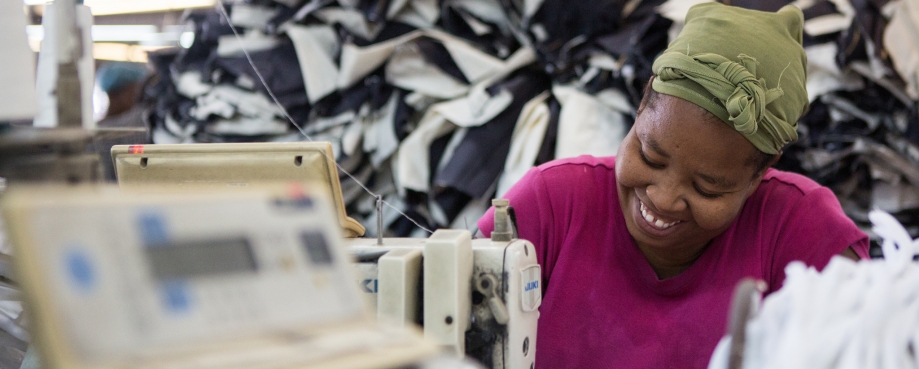
The ILO is in a process of considering whether to establish a new convention on “Ending violence and harassment against women and men in the world of work”. Gerry Boyle, Head of Policy and Advocacy at CARE International UK, writes that this as a key opportunity to reduce the prevalence of gender-based violence towards women workers.
Gender-based violence is both a cause and a consequence of poverty and gender inequality, and it is a central barrier to women’s economic empowerment.
To quote the International Trade Union Confederation (ITUC) it remains one of the “most tolerated violations of workers’ human rights”. According to statistics, 35% of women - 818 million women globally - over the age of 15 have experienced sexual or physical violence at home, in their communities or in the workplace.
Gender-based violence also has enormous economic cost in terms of services (health, police, legal) and decreased productivity, with flow-on effects to family income, mental health and food security.
For instance, recent CARE research in Cambodia showed that sexual harassment is a regular occurrence: “nearly one in three women garment factory workers report experiencing sexually harassing behaviours in the workplace over the last 12 months”.
Care also estimated that the productivity cost of sexual harassment in the garment industry in Cambodia is US$89 million per annum.
The ITUC has identified numerous forms of gender-based violence at work, whether occurring at the actual place of work or on the way to and from work. This includes: physical abuse including assault, battery, attempted murder and murder; sexual violence including rape and sexual assault, sexual harassment, verbal and sexist abuse and stalking; bullying and coercion; psychological abuse, intimidation and threats of violence; and economic and financial abuse.
Global value chains
Global value chains make workers particularly vulnerable to sexual harassment and other forms of gender-based violence on the factory floor.
Power differences between a mostly female workforce and majority male management in the factories, in addition to a repetitive and high-pressure work setting based on meeting production targets, have all been identified as factors that lead to a hostile work environment.
And this is in an environment of broader power differences and deep-rooted social norms and practices that devalue women and their economic contribution, as well as stigma and vulnerability associated with certain types of work (e.g. in garment factories).
However, gender-based violence in global value chains remains a largely hidden issue. It rarely appears on ethical audit reports and data on prevalence and the impact it has is fractured.
Unfortunately, it is also often low on the priority list of brands and employers – as it is not considered a core labour rights issue – and trade unions often fail to prioritise it, despite the largely female workforce in the industry.
The power of ILO conventions
How will an ILO Convention help to prevent gender-based violence?
The ILO is the tripartite (government, employers, workers’ representatives) arm of the UN which focuses on working conditions and work-related social protection.
Its Conventions form a “fundamental law” of working conditions.
A new ILO Convention on ending violence and harassment in the workplace would require governments to pursue an integrated approach to address violence and harassment in the world of work. It would delineate clear responsibilities for public and private employers, workers and their respective organisations, and governments. And agree on joint strategies and collaboration.
Any government ratifying an ILO Convention is committing itself to applying the Convention in national law and practice and reporting its application at regular intervals; in addition, complaints can be made against countries for violations of a Convention they have ratified.
A new Convention, therefore, will push countries, employers and trade unions and other worker representatives to place greater priority on recognising, tackling and remedying violence and harassment at work.
Ensuring take up
CARE is strongly supportive of the initiative and is committed to working with others across government, employers and trade unions to achieve a progressive and effective Convention and supporting recommendations.
Trade unions have been pushing for such a Convention for some time and the ITUC (the unions’ global coordinating body) has been campaigning actively at the international level.
Although the process of deciding whether or not to bring a new Convention into being will continue until 2020, CARE will be working with our allies to persuade governments to strongly support the Convention.
We ask everyone interested in women’s rights and in workers’ rights to support the ILO Convention – check out the ITUC Campaign, keep up to date with what’s happening, and ask your own organisation what it is doing to support the Campaign.
An earlier version of this blog appeared on the CARE Insights blog pages on 25 August 2017.
The image is courtesy of the ILO and is for illustrative purposes only. It does not have any links to violence in the workplace.
